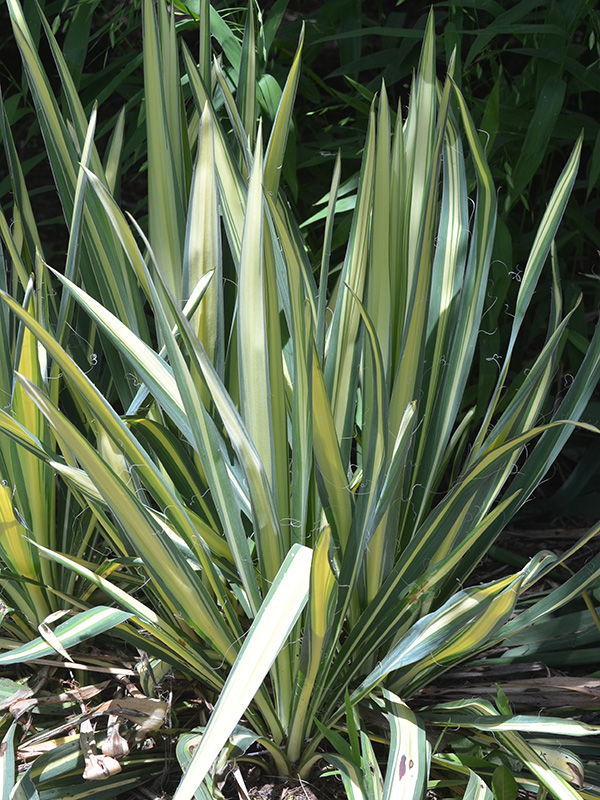
Woody > Yucca > Yucca flaccida > Yucca flaccida 'Golden Sword'
Yucca flaccida
'Golden Sword'
Golden Sword Yucca
Mike's
Opinion


"
This Yucca is a tough plant suitable for very dry areas where the soil is poor. 'Golden Sword' is one of the more attractive cultivars and I have used it to good effect in contemporary landscapes. I once tried to kill a Yucca flaccida growing in my own garden. It involved digging, using the lawn mower and finally parking the truck tires over it when it reappeared in the drive.
Michael Pascoe, NDP., ODH., CLT., MSc. (Plant Conservation)
"
| Family |
| Asparagaceae |
| Genus |
| Yucca |
| Species |
| flaccida |
| Cultivar |
| 'Golden Sword' |
| Category |
| Woody |
| Type |
| Shrub (evergreen) |
| Synonyms |
| Yucca filamentosa 'Golden Sword' |
| Pronunciation |
| USDA Hardiness Zone |
| 5 - 9 |
| Canadian Hardiness Zone |
| 4a |
| RHS Hardiness Zone |
| H3 - H7 |
| Temperature (°C) |
| -29 - (-1) |
| Temperature (°F) |
| -20 - 30 |
| Height |
| 2 m |
| Spread |
| 50 cm |
Photographs
Description and Growing Information
Flowering Period
| General Description |
| Yucca flaccida 'Golden Sword' resembles an Agave with its narrow leaves forming a single rosette. Leaves of this cultivar are banded with gold. Bell-shaped, ivory flowers are clustered in a tall spike. |
| Landscape |
| This is a very tough plant suitable for very dry areas where there is poor soil. |
| Cultivation |
| Easily cultivated in a range of soils and conditions but is not tolerant of wet soil. Prefers sun but will survive in partial to deep shade. |
| Growth |
| Medium |
| ID Characteristic |
| Long thin, strap-like leaves with an acute apex, wide, golden margins and a rich green centre. |
| Habitat |
| Horticultural origin. |
| Bark/Stem Description |
| On old plants, the stem may be visible where leaves have dropped. Not true bark, pale grey. |
| Leaf Description |
| Long, thin, strap-shaped, acutely pointed with wide yellow margins. |
| Flower Description |
| Flower spike up to 2 m with ivory coloured, bell-like flowers 5 ⨉ 5 cm, clustered in a spike. |
| Fruit Description |
| Dehiscent, 3-celled with many ovules. Dark green in colour turning grey-brown when ripe. |
| Texture Description |
| Coarsely textured. |
| Notable Specimens |
| The Gardens of Fanshawe College, London, Ontario, Canada. |
| Propagation |
| By division of the thick roots. Seed is dependent on pollination by the Pronuba Moth. |

